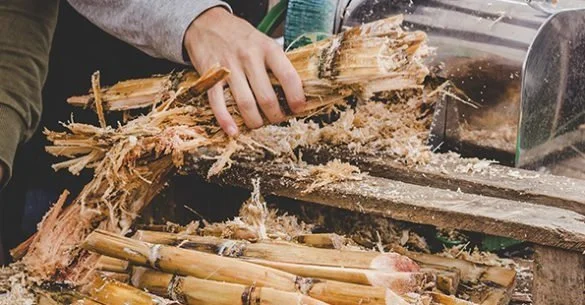The Historical Significance of Rum in the Virgin Islands
The history of rum in the Virgin Islands is deeply intertwined with the region's colonial past and its rich sugar industry. For centuries, rum production has been a significant part of the islands' cultural and economic heritage. This distilled spirit has played a pivotal role in shaping the Virgin Islands' identity and has become synonymous with the Caribbean lifestyle.

Rum's Beginnings in the Virgin Islands
The origins of rum production in the Virgin Islands can be traced back to the 17th century when European powers established sugar cane plantations in the region. The British and the Danish both had a presence in the islands during this time. As sugar production boomed, plantation owners faced the challenge of finding a profitable use for the molasses, a byproduct of the sugar-making process. The solution came in the form of rum.
Rise of Rum Distilleries in the Virgin Islands
The molasses, a thick, dark syrup, was fermented and distilled to create rum. Distilleries sprang up across the islands, particularly in St. Croix, where fertile land and favorable climate conditions made it ideal for growing sugar cane. These early distilleries were often small-scale operations, utilizing pot stills and crude techniques to produce the spirit.
The Virgin Islands as a Rum Powerhouse
As the demand for sugar and rum grew, the Virgin Islands became a significant player in the Caribbean rum trade. St. Croix, in particular, became renowned for its rum production. The island's rum found its way into the holds of ships sailing to Europe, where it became a favorite among sailors and traders.
Transformations in the Rum Industry
In the 19th century, the United States acquired the Virgin Islands from Denmark, and with the advent of the industrial revolution, the rum industry underwent significant transformations. The introduction of column stills and modern distillation methods allowed for more efficient and consistent rum production. Large-scale rum distilleries emerged, further solidifying the Virgin Islands' reputation as a rum-producing hub.
The Resurgence of Craft Rums
In recent years, the Virgin Islands' rum industry has seen a resurgence as craft distilleries have gained popularity. These smaller-scale operations focus on producing high-quality, artisanal rums, often using traditional techniques and locally sourced ingredients. The rise of agricole rum, made from fresh sugar cane juice rather than molasses, has added a new dimension to the Virgin Islands' rum offerings.
Rum's Role in the Virgin Islands Today
Today, the Virgin Islands remain a sought-after destination for rum enthusiasts from around the world. The islands' rum tours and tastings offer visitors a chance to explore the rich history and flavors of this beloved spirit. The legacy of rum production continues to be a source of pride for the local communities, and the industry plays a vital role in the Virgin Islands' economy.
In conclusion, the history of rum in the Virgin Islands is a tale of colonialism, sugar production, and cultural heritage. From humble beginnings as a solution to molasses surplus, rum has evolved into a symbol of the islands' identity. Whether sipped neat, mixed into a cocktail, or used as a cooking ingredient, rum remains a beloved and integral part of the Virgin Islands' vibrant culture.





